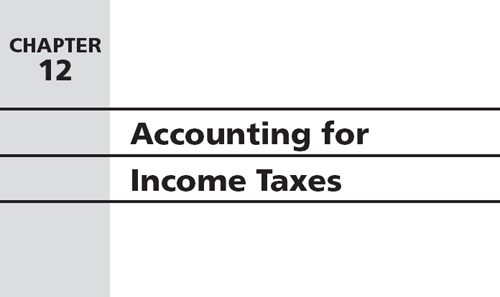
Most accountants now agree that corporate income tax is an expense. Treating income tax as an expense is required under current GAAP. This treatment is consistent with proprietary theory, because the earnings that accrue to owners are reduced by corporate obligations to the government. Also, because the income tax does not result from transactions with owners, expensing corporate income tax is consistent with the SFAC No. 6 definition of comprehensive income. Thus, on the surface, accounting for income taxes would appear to be a nonissue.
Yet accounting for income taxes has been a most controversial financial accounting topic for many years. The controversy centers on a number of reporting and measurement issues. This chapter traces the historical development of GAAP for income taxes. It examines the theoretical accounting issues as well as the reporting requirements of APB Opinion No. 11, SFAS No. 96, and the current authoritative pronouncement originally issued as SFAS No. 109 (see FASB ASC 740).
Historical Perspective
Accounting for income taxes became a significant issue in the 1940s when the Internal Revenue Code (IRC) permitted companies to depreciate the cost of emergency facilities considered essential to the war effort over a period of 60 months.1 For a five-year period, businesses were able to reduce taxable income below what it would have been under the accounting method ...
Get Financial Accounting Theory and Analysis: Text and Cases, 11th Edition now with the O’Reilly learning platform.
O’Reilly members experience books, live events, courses curated by job role, and more from O’Reilly and nearly 200 top publishers.

